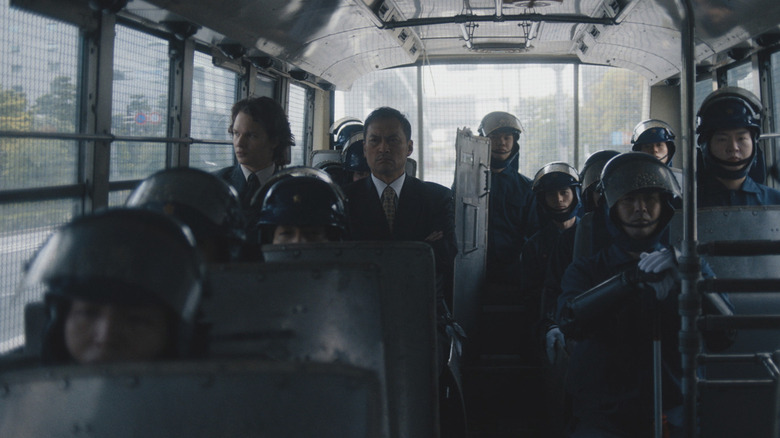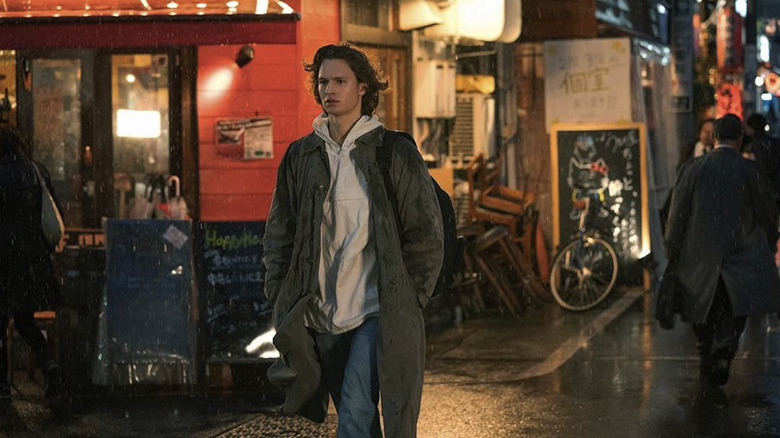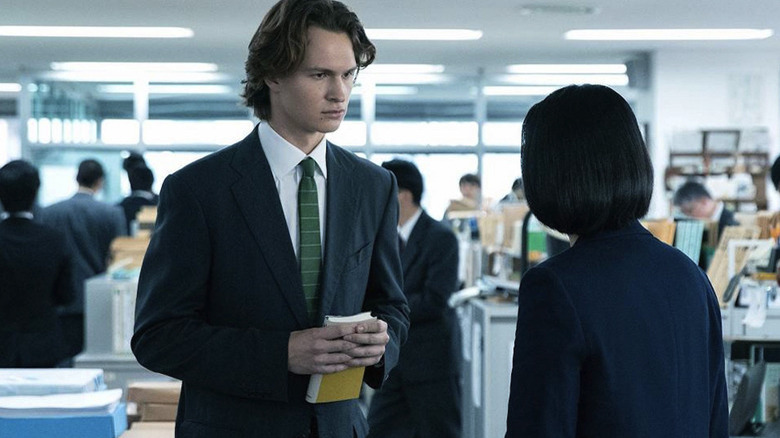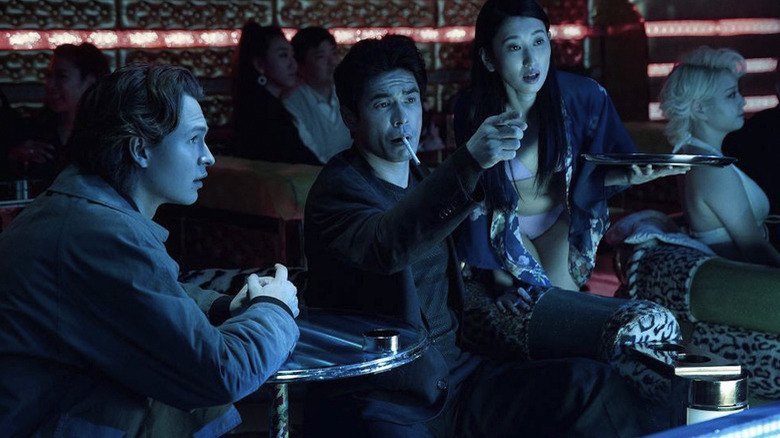Tokyo Vice Creator J.T. Rogers And Star Ansel Elgort On Immersion, Pacing, And A Possible Season 2 [Interview]
J.T. Rogers is a Tony Award-winning writer whose first produced TV credit was last year's HBO movie "Oslo." Now he's stepping up his game in a major way as the creator and showrunner of "Tokyo Vice," a sleek crime drama that boasts Michael Mann as a director and actors like Ansel Elgort ("West Side Story") and Ken Watanabe ("Inception") as its stars. The series kicks off as a journalism-centric tale about an American writer who gets a job at a Tokyo newspaper, but slowly expands to follow the lives of several different characters, including a morally gray detective, a gang member rising through the ranks, and a young woman who wants to start her own club.
/Film spoke with Rogers and Elgort about the project's evolution from a possible movie into an eventual TV series, the research that went into playing a journalist, finding the pacing for the story, and more.
'The blessing in disguise was getting to come back to it a number of years later.'
J.T., I want to start with you. I know at one point there was talk about this being a movie, and obviously the biggest difference between a film and a show is that with a show, you have more time. Aside from that, can you tell me how this story evolved as you reworked it into a series?
Rogers: Yeah. After writing it as a film in a two-hour, much more action-packed thriller, Japanese "All the President's Men"-type tale, the blessing in disguise was getting to come back to it a number of years later and start from scratch. By having the longer period, by making it on television, what it allowed us to do is to really make, I think, the first Western film or TV show that's been able to take such a deep dive into these subcultures in Tokyo and make Tokyo itself a main character of the show.
'We went and got police reports and actually went into the streets and did some investigative journalism.'
For Ansel, I'm guessing that you probably had access to the real Jake Adelstein if you had any questions about his experiences. But I'm curious also if you watched any journalism movies to try to pick up any tricks that you might be able to use on screen in your performance at all?
Elgort: Yeah. Like J.T. referenced, "All the President's Men" — definitely watched that. Also, I got to do some journalism crash courses that Michael Mann put me through with a retired journalist who used to work with the L.A. Times and does private investigating now. He put me through a crash course, and then I went to the L.A. Times and shadowed an investigative journalist there. Then, actually, we went and got police reports and actually went into the streets and did some investigative journalism, went and interviewed people, learned how to charm people into giving you quotes. Some people didn't want to be quoted. "Okay, I'll put you on background." And really, wrote out a whole story. So, working with Michael Mann was great in that way because as a director, he wants everything to feel very real, very rooted, and he wants his actors to be able to feel immersed in a real way.
Was there anything specific that you picked up from either Robert Redford or Dustin Hoffman in terms of just the way that their physicality or anything like that you were trying to just try to sneak in there, maybe emulate in some way?
Elgort: [laughs] Well, I feel like Dustin Hoffman has this confidence and "won't take no for an answer" kind of attitude, defying authority that I definitely brought to Jake, which is especially hilarious in a Japanese world where it's so linear. You would never challenge your authority. So here you have this larger than life, gaijin rookie who's immediately challenging authority, which is just absurd. So then it makes it fine when they yell at him, because he deserves to be yelled at.
'There's so much more already ready to tell.'
So J.T., I'm sure you've heard complaints in the streaming era about shows that feel like they go on for too long and as a storyteller now working in this space, was that on your mind when you were trying to figure out the right way to pace a story like this, moving from a film into a TV show?
Rogers: There were a few years between the script I wrote that almost happened and did as a movie and coming back as the series. So really, it was a complete redo. It was almost like starting from scratch. So, they weren't connected in that way. No, I think that the challenge, in a way, was there's so much story to tell, as opposed to, "Oh, are we padding it out?" In this case it was, "Oh, there's so much."
And if we are so lucky to get to do a second season — and that'll just depend on the eyeballs of the world, as much as we'd all love to — there's so much more already ready to tell. So yeah, it really was the opposite that. It was "Gosh, we can't get it all in." Because I think it's important for the audience to understand that we start following Ansel, this Western journalist fish-out-of-water character, so articulated there a moment ago by Ansel, but then it expands outward and outward and we're following a whole series of leading characters, with Jake being the first among equals and ensemble. So we've got four worlds and four stories to juggle. So yeah, that wasn't a problem, the timing. [laughs]
"Tokyo Vice" premieres on HBO Max on April 7, 2022.



